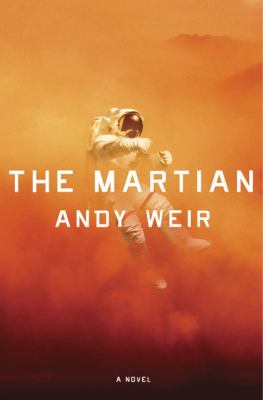
I’m stranded on Mars. I have no way to communicate with Hermes or Earth. Everyone thinks I’m dead. I’m in a Hab designed to last thirty-one days.
If the oxygenator breaks down, I’ll suffocate. It the water reclaimer breaks down, I’ll die of thirst. If the Hab breaches, I’ll just kind of explode. If none of these things happen, I’ll eventually run out of food and starve to death.
So yeah. I’m fucked.
Following an accident, astronaut Mark Watney is left stranded on Mars, presumed dead by his crewmates. How will he survive in this barren, hostile planet, totally alone until the next scheduled space mission lands in four years’ time?
This is the opening scenario of The Martian, a novel that is a perfect example of a theme that has been developing in modern culture over the last decade or so: the geek as hero. Watney’s knowledge of botany, chemistry, cosmology and materials science is vital for his survival. Suddenly, whether scientific theory can work in practice is a matter of life or death. Watney has to rapidly make phenomenally clever calculations, and apply them instantly where the result is of vital importance. Most of us know that the chemical formula for water is H2O, but not many of us would be able to apply this knowledge to make water from scratch on another planet.
Despite these technological trimmings The Martian is at heart a surprisingly old-fashioned story. What could be more primitive than having to struggle for the very air you breathe? The result is a gripping adventure story. Lots of people have described it as ‘Robinson Crusoe on Mars’ and that’s a pretty neat summary. This is ‘science’ fiction not in the narrow sense of a fetishisation of cutting edge modern technology, but in the wider sense of a celebration of human ingenuity. And Watney is undeniably ingenious: this is the man who when faced with the problem of how to start a fire with no flammable materials uses his own arm hair as tinder. Some of his solutions for survival are low-tech, such as growing potatoes for food using soil and (human) fertiliser. He also makes use of a navigational technique from the 16th century: using a sextant to calculate latitude. And over the course of the novel he uses a hell of a lot of duct tape.
Yes, of course duct tape works in a near-vacuum. Duct tape works anywhere. Duct tape is magic and should be worshipped.
The Martian is an action thriller, rather than a psychological thriller. When I started reading I thought there might be some sick twist to the story – some betrayal or sabotage by someone Watney trusted, or that he himself would become pychologically scarred by his ordeal. But this is another way that The Martian could be considered a straightforward old-fashioned story. There is no villain, unless the indifferently hostile Mars itself counts. Watney is a likeable hero with no hang-ups: cheerful, resourceful and mentally balanced. This makes sense though, as this is the kind of person who NASA would pick for an interplanetary mission. If there’s one thing reading this book has taught me, it’s to face up to the fact that NASA is never going to send me to space; it’s also taught me that I wouldn’t want to go anyway. But I loved reading about it. I’d particularly recommend this book to anyone interested in science, space travel or survival stories, but it would be enjoyed by anyone who just wants an uncomplicated exciting adventure story.
